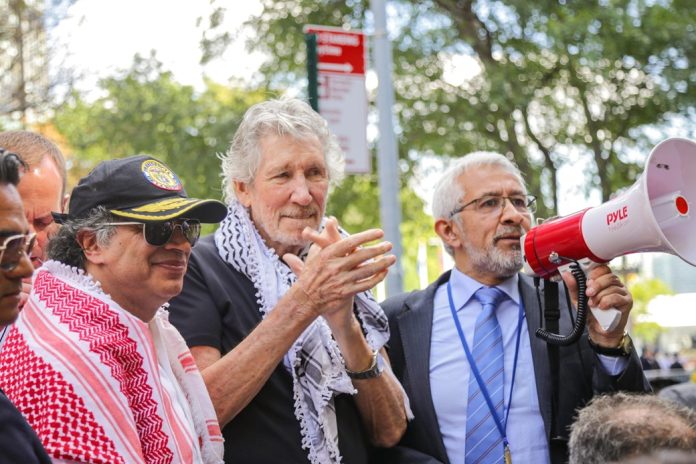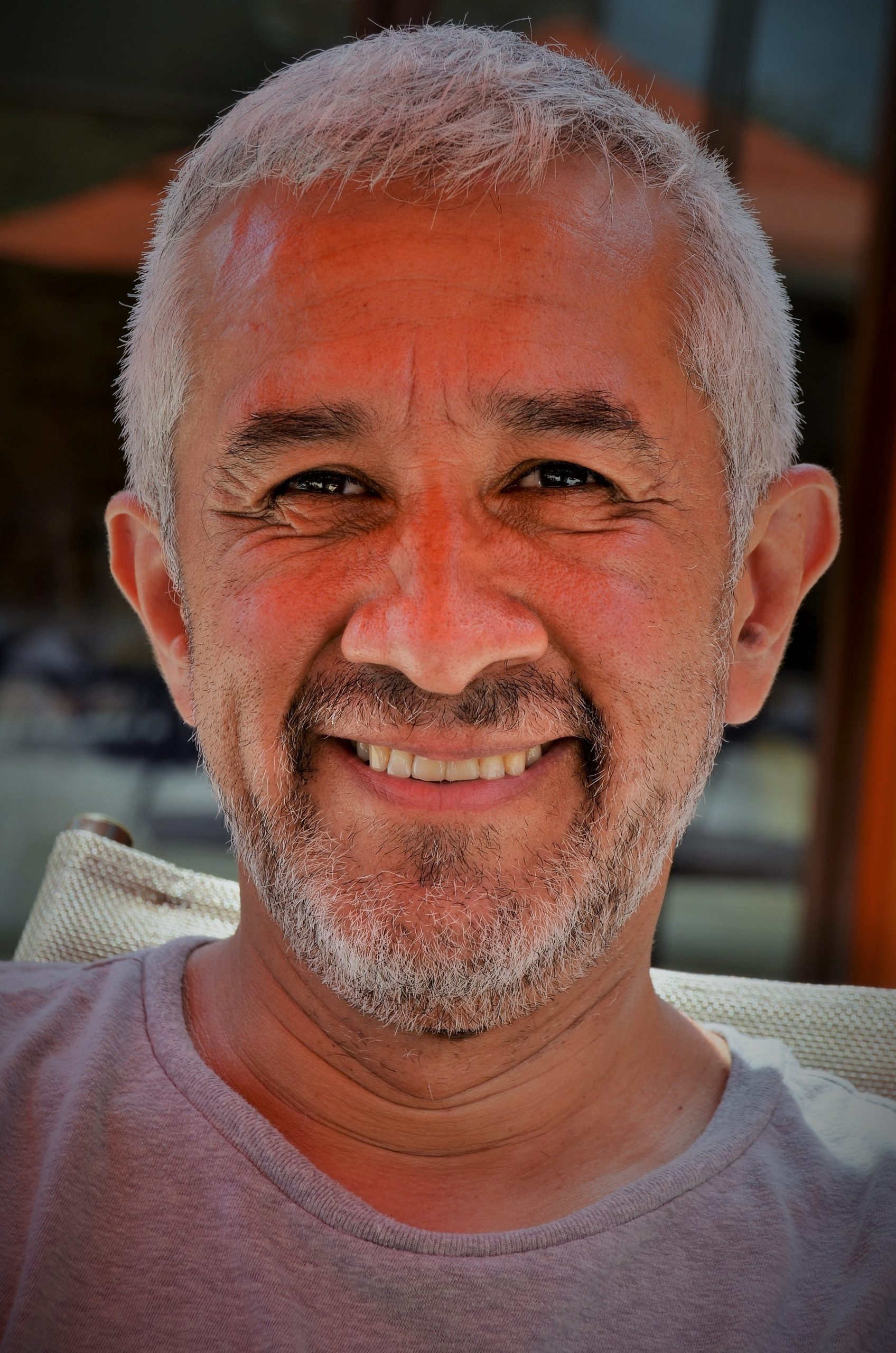Victor de Currea-Lugo | September 28, 2025
Henry IV, to maintain the unity of the French kingdom, converted to Catholicism. Legend has it that he immortalized that decision with the phrase: “Paris is well worth a Mass.” Well, we can say it differently: “Gaza is well worth a visa.”
Of course, the phrase and the context in which Henry IV used it were vulgar political opportunism and nothing comparable to what Philip II said at the time: “I would rather lose my states than rule over heretics.” It is possible that President Petro also thought along these lines: “I would rather lose my visa than be ruled by genocidal maniacs.”
Beyond the debate on legal and political forms, the truth is that there is currently a discussion in Colombia that, in part, reveals the real level of political commitment not only to the Palestinian cause but also to the project of change.
On the one hand, I have received numerous comments from people—the vast majority—who appreciate the president’s gesture because they know, first of all, that it is not a spur-of-the-moment decision made on the streets of New York, but the result of a long chain of events that involves: breaking diplomatic relations with Israel, no longer selling Israel coal, no longer buying weapons from Israel, intervening in the South African case against Israel for genocide before the International Court of Justice, requiring visas for Israelis to travel to Colombia, sending humanitarian aid, and much more.
Most of these people are grateful that Petro said what everyone wants someone to say, but no one has dared to say it. In that sense, he is unique. The painful thing, without this implying any contradiction, is that the president is stating the obvious: that it is wrong to kill people, bomb schools, and attack hospitals. In this world of Zionist censorship, the situation is so severe that saying no to genocide becomes practically an act of heroism.
The second type of comments I’ve gotten is from people who are stuck on details. Their concern was whether my choppy English interpretation, as I stood with Roger Waters and Petro, accurately reflected what the president had said; whether the setting was suitable, or whether Petro’s choice of words was due to reasons of state and careful prior consideration. But we are not writing a legal history book or engaging in a conceptual debate here: instead, we are confronting an overwhelming reality.
And that overwhelming reality cannot continue to be diluted by the postmodern techniques typical of woke technocratic culture, in which form is more important than content, focusing on discussing the value of adjectives and the importance of numbers rather than reality.
Personally, I would find it very difficult to tell my friend Shayma Abualatta, who has already been forcibly displaced 16 times in Gaza, that the problem has only to do with “how we define the Palestinian world from a subjective postmodern narrative of self-perception” and other similar things.
Those who believe that Gaza is not even worth a visa
Of course, some are absolutely terrified and rush to call because their primary concern is that we will lose our visas. In their words, how is it possible that I can’t go back to Miami or Disneyland because Petro is concerned about some distant deaths?
And the visa fetish, as if it were a big deal, becomes the priority even for some comrades who claim to be for change, whose primary concern is not mass killings in the 21st century, but only the possibility of going to visit Fifth Avenue to buy trinkets at high prices.
Understandably, those who have businesses in the United States and have not yet realized that Miami is not the capital of Latin America and that the world is vast and diverse would be truly mortified at losing a U.S. visa.
And of course, some feel aggrieved not by the bombs raining down on Gaza, but by an uncomfortable phrase uttered in New York. They say that it is “irresponsible” for the president to criticize a foreign power. But when those same powerful interests have remained silent or financed murderous governments to maintain business, that is “business sense.” In Colombia, selective morality is a well-cultivated art.
Just look at how economic and business associations reacted to the president’s actions: they signed a public letter rejecting his statements in the United States, calling them “irresponsible” for inciting rebellion against genocide.
On social media, too, there are increasing accusations that “the great sin” was not yesterday’s bombing of Gaza, but that Colombia has now jeopardized its commercial and diplomatic relationship with Trump.
Meanwhile, some media outlets are horrified to report that certain statements could affect diplomatic relations with the United States. They are alarmed by what is said, not by what is done. Because when the dead are far away, outrage is abstract; the urgent thing is that the exchange rate is not affected, nor that international morality loses market value.
Some Colombians who were concerned about our visa revocations were also concerned about the country’s decertification. They don’t care about the reality of, for example, drug seizures and focus only on what the mainstream media says. It is to be expected, then, that Washington’s decision hurts them; although the truth is that this decertification is nothing more than a somewhat postmodern thing: that is, empty symbolism.
Of course, I would not be surprised if that indignant group of people includes the same ones who refuse to let us stop selling coal to Israel, and who also fought against charging adequate taxes on coal sales in the past.
The same people who accuse us of anti-Semitism and anything else they can think of to discredit us when it comes to opposing genocide. The same people invoke the forms of international diplomacy and protocol when, as President Petro said, diplomacy has proven useless.
In Gaza, diplomacy is dead.
Diplomacy is not dead because Petro decreed it so; it is dead because the United States decreed it so, with its 51 vetoes in the Security Council in favor of Israel. If, after this reality, we still believe that the law automatically guarantees answers, we are naive to an extreme degree.
It was very difficult to talk about the Geneva Conventions—especially the third one, on prisoners of war—after Guantanamo, and now it is very difficult to talk about the Genocide Convention after what is happening in Palestine. Is there still a window left to discuss children’s rights? Or is there any hope left to talk about the distinction between civilians and combatants?
One of President Petro’s central issues is that he seriously questions the UN. It is not a matter of waiting for the UN to reform so that, once reformed, it can address Gaza; it is a matter of addressing Gaza to force it to reform. I would not be able to tell those who were in the Warsaw ghetto to let themselves be killed because soon, the world is going to found the UN.
It is not the orthodox thing of “unity, organization, and struggle,” but instead of reshuffling those formulas and seeing where we are going. It is very painful that those who lead armies of occupation and genocide are applauded at the UN, while those who speak of armies of salvation are rejected.
History, beyond what angry pacifists say—some of them pacifists out of cowardice—shows something else: neither the Hutu genocide against the Tutsis, nor that of Cambodia, nor that of World War II, which they hold against us so much, were stopped by Facebook groups or white flag marches.
Unfortunately, and painfully, they had to resort to the use of force. What President Petro has said is not a delusional proposal, but a historical observation. So, if historical observation compels us to seek effective ways forward, we must remember Mandela, who said, “It is morally reprehensible to use ineffective means.”
Condemning Petro’s call is as foolish as denying what motivated people around the world to support the International Brigades in the Spanish Civil War or the resistance during World War II, a resistance that we must reevaluate, considering Gaza.
Obviously, I expected the Zionist right and the press to come out and say what they have said, but not some “comrades in arms,” among whom there are those who threaten that they would be willing to give their lives for justice, but the truth is that they are not even willing to give their visas.
Petro’s speech at the UN confronts the inefficiency of international law with the reality of genocide. It is time to take sides. Lukewarm support only serves the genocidaires. But in this country, we are still arguing about whether the comma or the adjective is essential, when the truth is knocking at our door.
PS: The opinions expressed in this article are solely those of the author and do not necessarily reflect the position of the institution for which he works. The author is the Colombian government’s presidential advisor for the Middle East.












